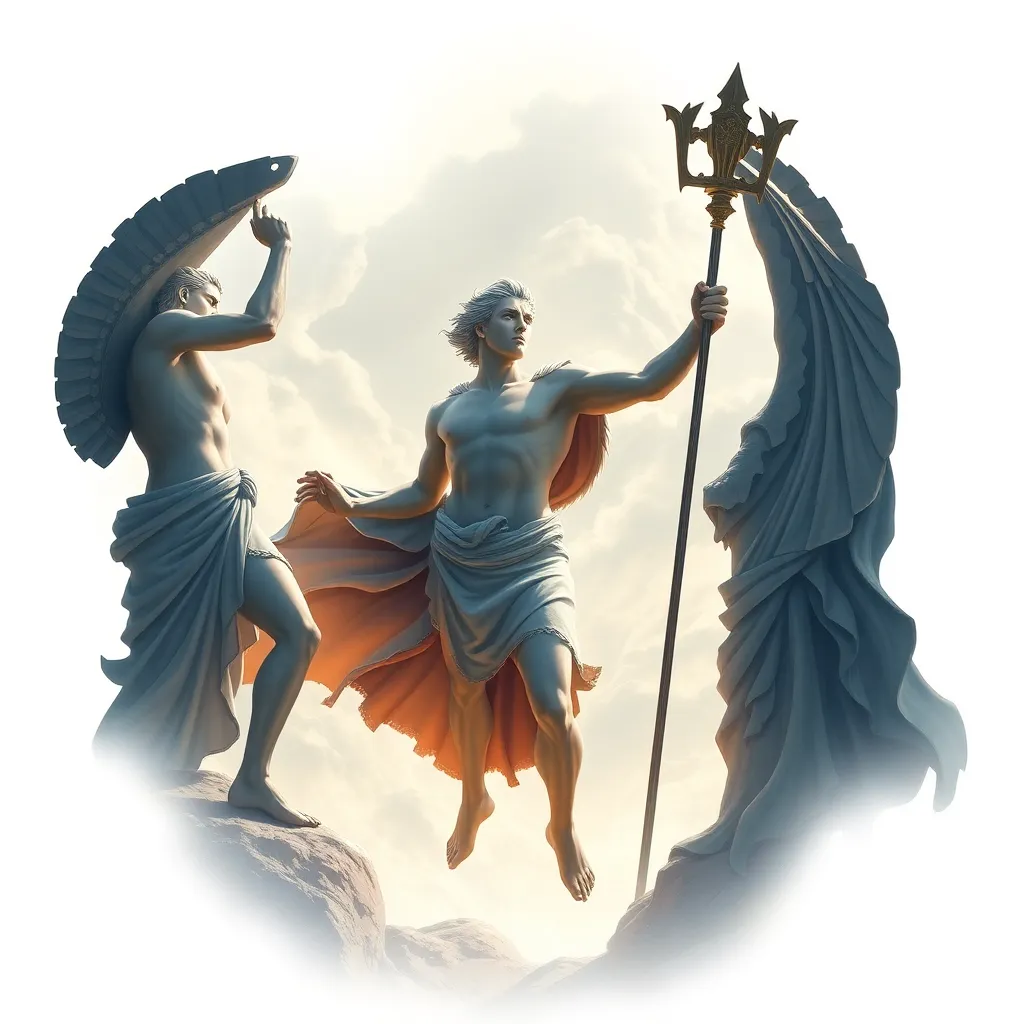The Role of Fate in Perseus’ Triumphs and Trials
I. Introduction
Perseus is one of the most celebrated heroes in Greek mythology, known for his daring exploits and triumphs against formidable foes. He is best remembered for slaying the Gorgon Medusa and rescuing Andromeda, but his story is intricately woven with themes of fate and destiny. In ancient Greek culture, the concept of fate played a pivotal role, influencing the lives of mortals and gods alike. This article explores how fate influences Perseus’ journey, shaping his encounters with challenges and victories.
II. The Mythological Context of Fate
In Greek mythology, fate (or “moira”) is often seen as a predetermined course of events that is inescapable. The Moirai, or Fates, are three sisters—Clotho, Lachesis, and Atropos—who spin, measure, and cut the thread of life, respectively. Their significance lies in the belief that they govern the destinies of both gods and mortals, determining the outcomes of their lives.
The interplay between fate and free will is a complex theme in Greek mythology. While the Fates weave the destinies of individuals, heroes often face choices that can alter the course of their journeys. This duality raises questions about the extent of human agency in a universe governed by fate.
III. The Prophecy and Its Implications
The story of Perseus begins with a dire prophecy: King Acrisius of Argos is warned that he will be killed by his grandson. To prevent this fate, Acrisius imprisons his daughter, Danaë, but Zeus intervenes, and Danaë bears Perseus. This prophecy sets the stage for a series of events that intertwine fate with human actions.
Despite Acrisius’ attempts to alter his fate, sending Danaë and Perseus away in a locked chest, fate prevails. The prophecy shapes Perseus’ early life, instilling a sense of destiny that follows him throughout his adventures. His journey is marked by the weight of this prophecy, influencing his decisions and encounters.
IV. Trials and Challenges Faced by Perseus
One of the most significant challenges faced by Perseus is his encounter with Medusa, the Gorgon whose gaze can turn men to stone. This trial serves as a test of courage and fate, as Perseus must confront not only a formidable foe but also the implications of his actions. With the help of divine gifts from gods like Athena and Hermes, he embarks on his quest.
- Divine Intervention: The gods play a crucial role in Perseus’ journey, providing him with weapons and guidance. Athena’s shield allows him to confront Medusa without meeting her gaze, highlighting the interplay between fate and divine support.
- Fate vs. Choice: As Perseus faces various challenges, he makes choices that reflect his character. His decision to confront Medusa is a pivotal moment, showcasing his bravery and the influence of fate guiding him toward his destiny.
V. Triumphs of Perseus: The Influence of Fate
Perseus’ triumph over Medusa is not just a personal victory; it is a fateful moment that alters the trajectory of his life. The act of slaying Medusa is steeped in fate, as it is both a fulfillment of the prophecy and a means of establishing his heroism.
Furthermore, his rescue of Andromeda adds another layer to his story. Fate plays a hand in their love and heroism, as Perseus is destined to be with Andromeda, who is sacrificed to a sea monster. Their union exemplifies how fate can lead to love and adventure, intertwining their destinies.
VI. The Consequences of Perseus’ Actions
Every action taken by Perseus has consequences that ripple through his life and the lives of those around him. His triumphs, while celebrated, also bring about unintended consequences. For instance, after slaying Medusa, Perseus uses her head as a weapon, which leads to further conflicts.
- Impact on Destiny: Perseus’ actions not only shape his own fate but also influence the destiny of others, including those he encounters during his journey.
- Unintended Consequences: The theme of unintended consequences is prevalent, as Perseus’ victories often lead to unforeseen challenges, highlighting the complex nature of fate.
VII. The Legacy of Perseus: Fate and Heroism
Perseus is remembered in mythology as a symbol of heroism and strength, navigating the intricate web of fate. His legacy is one that intertwines with the concept of fate, demonstrating how heroes can rise above challenges while still being bound by destiny.
The relationship between fate and heroism is significant in Perseus’ story. He embodies the idea that while fate may dictate certain aspects of life, it is through courage and determination that one can carve their path. Perseus becomes a symbol of navigating fate, showing that while one cannot escape destiny, they can influence its course through their actions.
VIII. Conclusion
The interplay between fate and Perseus’ journey is a profound aspect of his myth. From the dire prophecy that shaped his early life to the trials he faced and his eventual triumphs, fate is a constant companion in his story. The philosophical implications of fate in mythology provoke reflection on the nature of human experience, illustrating that while we may be bound by fate, our choices still hold power.
In the enduring tale of Perseus, we find a rich exploration of fate, heroism, and the human experience. His story serves as a reminder that while fate may guide our paths, it is our courage and choices that define our journey.




